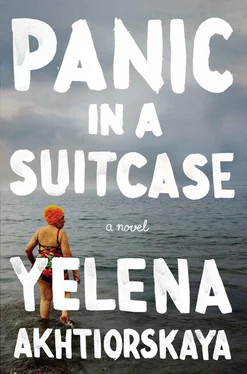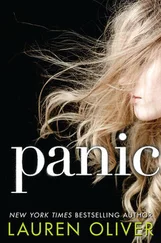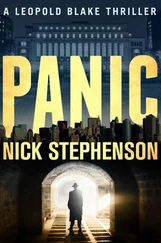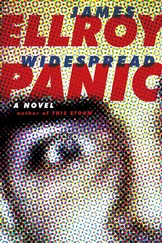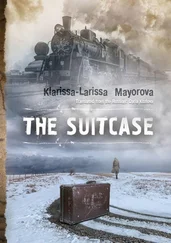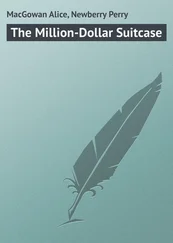The bus schedule wasn’t an issue for Pasha, who couldn’t remember the last time he’d been able to sleep past dawn. The complimentary breakfast was a nuisance — he helplessly found himself filling a large plate, a small plate, and a bowl and then methodically emptying them into himself, adding layers of food onto the undigested layers from the previous night. But the campgrounds, littered with makeshift stages, sunburned faces, crammed tents, appealed to Pasha in that they resembled a flea market — everything drab, plentiful, on display yet camouflaged, visible and utterly overlookable. Pasha had patience, the key with both flea markets and poetry festivals (and baseball games, so he’d heard). Oftentimes the most awaited readings proved the dullest and the most captivating had an audience that could be counted on one hand, or so it was nice to think. But who was Pasha kidding? And if Brodsky wasn’t around to listen as Pasha made fumbling attempts to explain himself — and by the looks of it he definitely wasn’t — Pasha would proceed to do so to whoever was listening, because as he returned to roaming the labyrinthine campgrounds in what would appear to be avoidance of Sveta and Bozhko, he realized just how overdue such an explanation was.
He wasn’t at the festival for what he could take away from the experience (a new poet to read, concept to mull, international collaboration to initiate), but for the experience itself — for the chance to roam patchy, bleached grasses in his Georgian vest, perhaps an occasional pipe between his hot, sandpapery lips, for good food and spontaneous conversation, often or always initiated by the other party. If he stood around for long enough, he was invariably approached by other poets, often female, who’d read his work and admired or even adored it, who weren’t shy or reticent with their opinions and seemed to believe that just having them was a source of pride. They wanted to let Pasha know that they considered him a poet of genius not getting his due, no, it’s true, he deserved far better treatment, a wider readership, international renown, and to be translated into every language imaginable, even Swahili. A scattered redhead claimed that his collection Ancestral Belt had been on her nightstand since 1995; a dark boy with emerald eyes, who might’ve been twelve, said that he’d been assigning Pasha’s Bestiary Cycle in both his Mythology of Poetics and Poetics of Mythology courses for a decade; a woman in her fifties with one arm in a giant cast (or a giant arm in a fitted cast) said that she’d recently read his poem “Black Arch” in one of her classes and rather liked it, though she found the wordplay at the beginning rather tiring and it could’ve easily been half as long, but even so it was memorable, which was more than could be said for the other poems assigned in that class. Pasha relished these encounters more than he let on, his regular life in Odessa devoid of them, but he usually quickly lost the actual content of the compliment, retaining only warmth, like having been awoken from a pleasant dream. He carried around this wonderfully incommunicable warmth for as long as the heat held, potentially an entire afternoon providing he didn’t happen to stumble into another encounter or a bit of news that froze him to the core, turning the saliva on his tongue to ice. But even when people weren’t approaching Pasha to tell him of the influence his poetry had on them, that influence was alive in the air. It was real. No one had to be reading his poetry, and he didn’t have to be writing it, and no mention of it had to be made, and still the influence was inarguably present, as present as the electromagnetic waves that miraculously allowed for cell-phone reception at the campgrounds in rural Georgia.
But currently there was a malfunction. Though people approached Pasha throughout the afternoon, not only did the heat not hold, it failed to appear. Real time had resumed — Sveta and Bozhko found Pasha, took him by the underarms, and led the way to the tent not where the conundrum of translation was once and for all being resolved but to the one with the red cross on the front, where a fat village beauty in a white uniform pinched his cheeks, called him Pumpkin Stew (for that was what he looked like), slammed a bag of ice on his forehead, and said heatstroke at least a dozen times, which was odd, as heat was the one sensation Pasha lacked. Equipped with a water bottle, a cap, and a few warnings, he was released. A few hours later, he read aloud to a packed auditorium; in terms of attendance, enemies were far more devoted than friends. The auditorium was large and had walls, and it couldn’t have been on the campgrounds, but then where was it? This was bound to remain a mystery.
After the reading Pasha proceeded to let loose at the Mongolian barbecue and the ensuing festivities, staying late into the evening, refilling his glass with punch, letting himself be drawn into a conversation with three women and one homosexual ballad-composer that proved not entirely as frivolous as he would’ve imagined it had he excused himself instantly in his regular fashion, or maybe it was just as frivolous but livelier and more nuanced, occasioned with moments worth having if you were in it for the experience itself. Ten days out of the year, he could make such an allowance. Despite all the genuine fun and enjoyment, of which he would’ve told the reporter from Znamya if she hadn’t lost her face, something was wrong. When the elevator took Pasha up to the forty-ninth floor, which he never realized was the top floor, thinking that there had to be another floor above, and after he managed to swipe the card so that the light turned green and let him into his room, where Sveta was already sleeping, the poor thing only able to take so much (though since when?), the oppressive mass again rolled over Pasha. First it crushed his toes, then it rolled off, and he thought with unspeakable relief that he’d been spared, but of course he was not.
He kept the lights off, and not for fear of waking Sveta. As a rule the first to fall asleep, Pasha didn’t have this particular consideration installed in his brain. If a light had been needed, he wouldn’t have hesitated to turn it on, provided he was able to locate the switch (not always so easy in these tricky hotel rooms). Pasha sat in the armchair by the wall. It began to feel like a wheelchair, so he went to stand by the window. Since he wasn’t sleepy, he considered listening to music — nothing too serious, something modern and light, maybe Mingus. But he quickly stopped considering, knowing that he wasn’t about to listen to any music.
The books that people mentioned when they approached him, Pasha realized, were old. The title he heard most often was Ancestral Belt , his first collection. The Bestiary Cycle was technically his third but truly his second ( Letter After the Quake , dedicated to Renata Ostraya, didn’t count). He’d written these so long ago they no longer felt written at all. Meanwhile his recent books, those of the past five years or so, were never mentioned. The explanation for this could be as simple as time — books required it. A collection needed to sit, some more than others. Not all response was instantaneous. And readers, merely human beings with their flaws, their daily worries, their limited attention spans, were uncomfortable with a writer’s creative evolution. Biological evolution was swallowed like a bitter pill, or a pill that used to be bitter and now came in improved gel-capsule form, as if morphing from monkeys into us were the most basic concept to fathom, not murky or bizarre or frustrating in the least, certainly nothing worth questioning, in fact pity the fool who still did — but if a poet made his name with sestinas, God forbid he should torture the public with a villanelle; if he traded in binary structures for free verse, all the worse for him. And that’s what Pasha had done, traded in something for something else, only it wasn’t as concrete as binary structures or free verse, and he couldn’t pinpoint precisely when the change had occurred. As a result he couldn’t be entirely certain it had been voluntary.
Читать дальше
